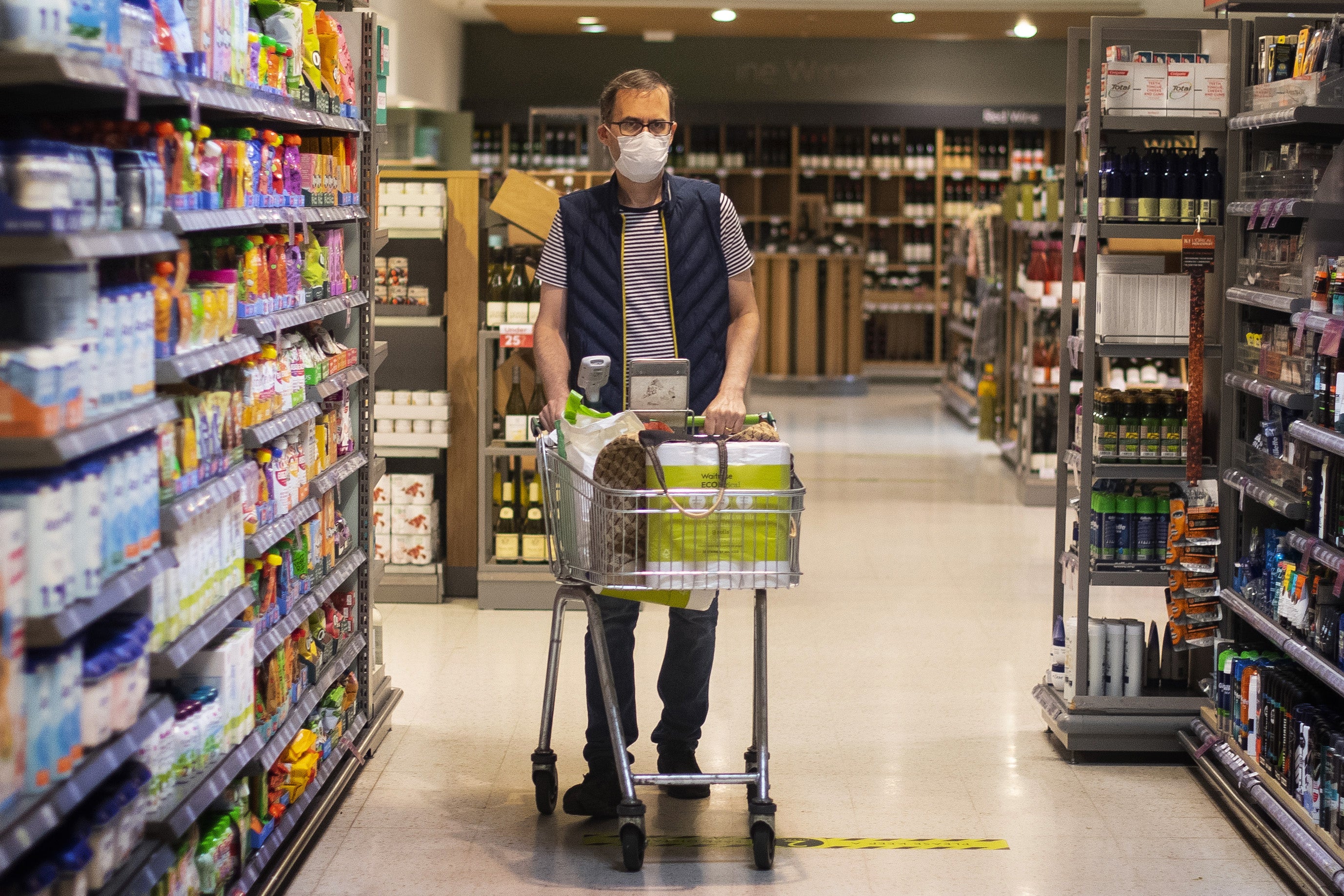Retail contraction of little concern after bumper April, analysts say
People were eating out more, meaning sales of food at retailers dropped heavily in May.

Your support helps us to tell the story
From reproductive rights to climate change to Big Tech, The Independent is on the ground when the story is developing. Whether it's investigating the financials of Elon Musk's pro-Trump PAC or producing our latest documentary, 'The A Word', which shines a light on the American women fighting for reproductive rights, we know how important it is to parse out the facts from the messaging.
At such a critical moment in US history, we need reporters on the ground. Your donation allows us to keep sending journalists to speak to both sides of the story.
The Independent is trusted by Americans across the entire political spectrum. And unlike many other quality news outlets, we choose not to lock Americans out of our reporting and analysis with paywalls. We believe quality journalism should be available to everyone, paid for by those who can afford it.
Your support makes all the difference.Analysts said that a surprise contraction in retail sales should not be cause for too much doom and gloom as retailers are still basking in a return from their pandemic slumps.
A contraction of 0.8% in May of sales by value may have been against the increase that had been forecast, but it compares to April, which had seen a massive increase.
“Oddly, the reason behind the decline isn’t that alarming – with lockdown easing, more people were spending money in restaurants, rather than buying food in supermarkets or online,” said Spreadex analyst Connor Campbell.
Lynda Petherick at Accenture said: “Despite a slight monthly decline on April, May nonetheless marked another month of progress for the retail sector, with sales still much higher than March 2021 and figures at the onset of the pandemic in February 2020.”
Yet, although May’s figures are not alarming in themselves, there is some evidence that the spending boom that followed reopening might be slowing further, said Samuel Tombs, chief UK economist at Pantheon Macroeconomics.
He pointed to Bank of England data showing that by one measure credit and debit card payments were 5% below their 2020 levels in the week to June 10, compared to just 1.5% down in May.
“In addition, OpenTable data show that restaurant diner numbers peaked in the second half of May and subsequently have nearly returned to normal levels for the time of the year,” he said.
Susannah Streeter, analyst at Hargreaves Lansdown said that the data included some potentially concerning figures for the high streets.
While footfall at retail parks is back to 98% of its 2019 levels, high streets are only at 76% of 2019 footfall, and shopping centres are faring worse still.
“It’s still unclear if this will be a long term trend or just temporary until shoppers receive the confidence boost of double vaccinations before they cram into smaller shops once more,” Ms Streeter said.
“For now though many high streets remain quieter compared to before the crisis hit, which will make filling empty shops an even harder task.”